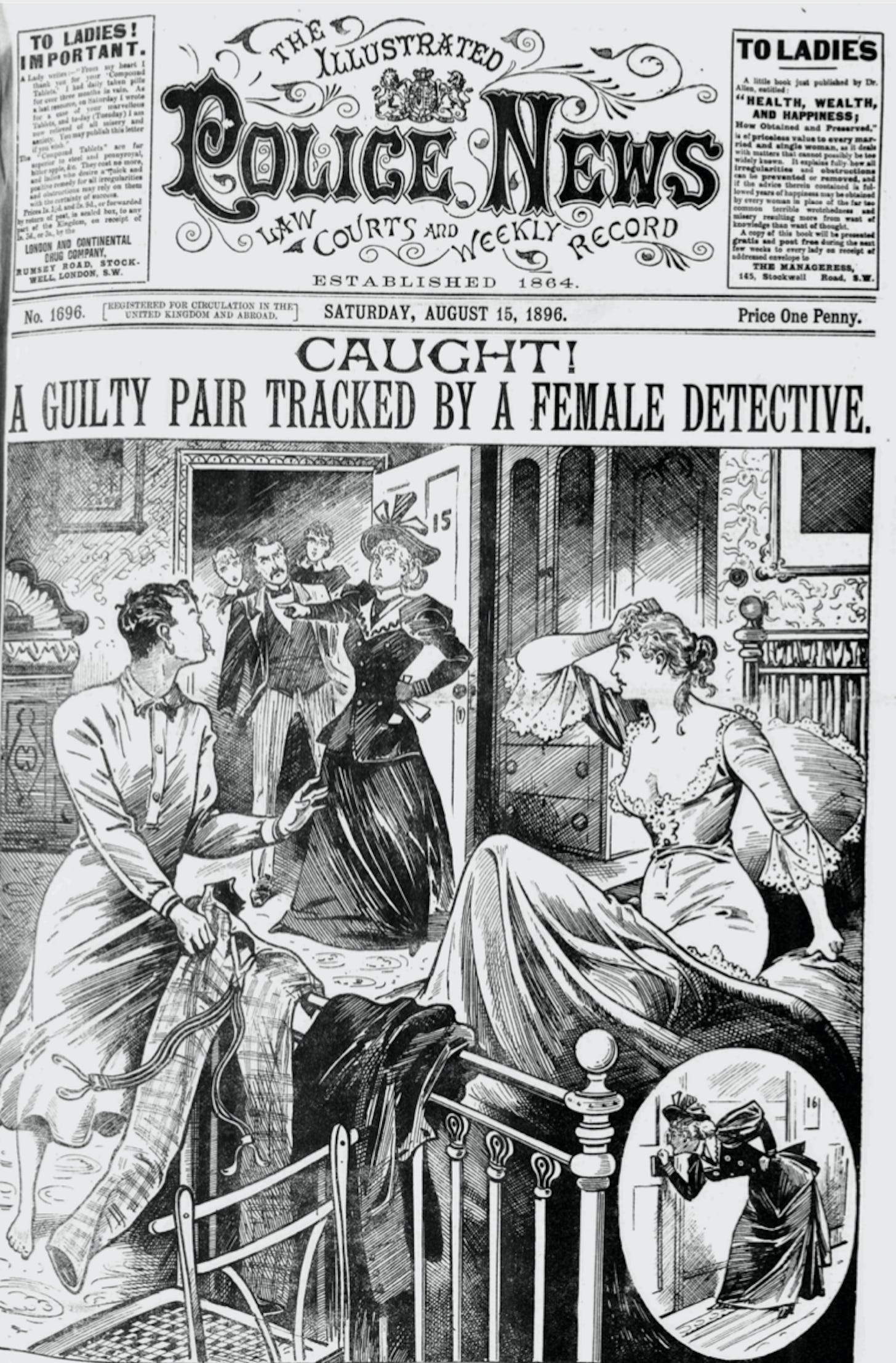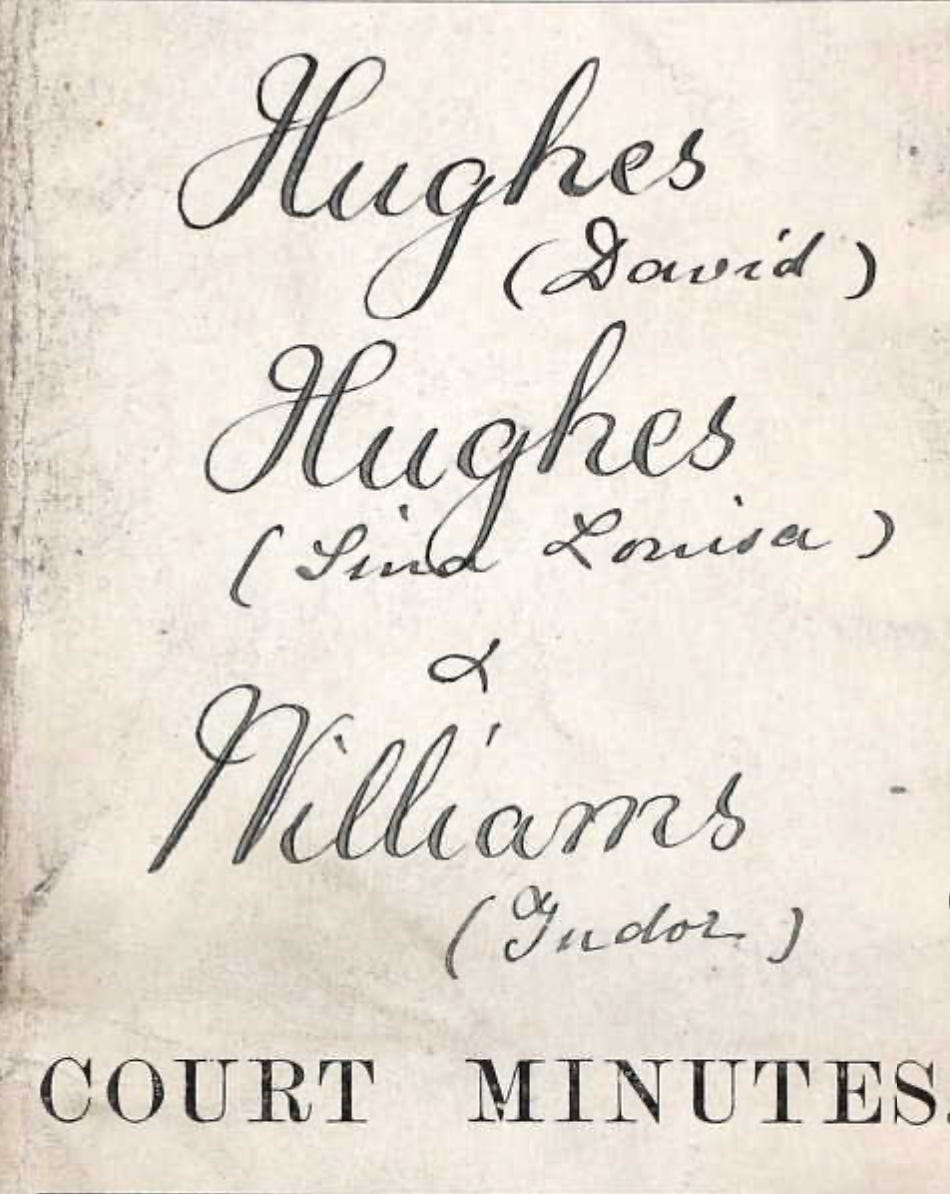The female detective and a half-naked chemist
A Victorian tale of sex, adultery and detective work

David Hughes was juggling – no, he wasn’t a clown, but he was juggling his family and his job to keep afloat. He was a widower, and now a single parent of four children. In order to keep his children fed and clothed, he also worked, running the Boot Hotel at Aberdare. What David Hughes needed was some love, and a good woman to help him run his home.
Luckily for David, he met Sina Louisa Mortimer. Sina was a young widow. Her husband, 35-year-old engine fitter George Hamilton Mortimer, had died in 1886, after 13 years of marriage, leaving her widowed at the age of 30. She too was in need of both financial and emotional support, having a young son, John, to maintain. She and David wasted little time after meeting, and married at the Tabernacle in Cardiff on 30 August 1887.
Sina was originally from Llantrisant – born there as Sina Louisa Williams. She was sociable, and had a good variety of friends in Cardiff, having lived there with her first husband. She was also used to travelling; she and her husband had lived in America, with their son being born in Missouri. David, however, was an Aberdare local, concerned with work and earning money. He offered security, but not excitement, and Sina was reluctant to give up on life’s pleasures.
Sina Hughes had introduced her husband to a friend of hers, Tudor Williams (not a relation!), who was a chemist with a love of patent medicines. The three of them were part of the same social circle (as one London paper put it rather mockingly, ‘the giddy whirl of life at Aberdare’). Tudor visited the Hughes family in the parlour of the couple; Boot Hotel, while David Hughes partook of Tudor Williams’ medicines.
David soon became concerned that Tudor might be ‘abusing’ his confidence, and by November 1895, he was worried enough to speak to his wife, to find out just how close she really was to the chemist. Her answer did not reassure him – he told her that he wasn’t satisfied that she was ‘behaving as a mother of one and stepmother of four ought to behave with a maker of patent medicines’.
Mrs Hughes angrily commented that if David thought this, he should ban Tudor from visiting their house; her husband agreed, and consequently, Tudor only visited the Boot Hotel once – when the couple were hosting a public dinner that they could not ban him from taking part in. Despite the ban, David Hughes was still concerned, to the extent that he hired a private detective to have his wife watched. The detective duly reported that she had left Aberdare on 31 March 1896 and travelled to Weston super Mare, where she met up with Tudor Williams. They engaged rooms at a hotel under the names of Mr and Mrs Griffiths, had their dinner at 7pm, and then retired to bed.
The private detective appeared rather morally indignant at the couple being in so much of a rush to get to their bed, and so promptly informed the hotel’s landlord that although Mrs Griffiths was married, it was not to Mr Griffiths but another man. A rather forbidding collection of individuals – the landlord and his servants – duly marched to the bedroom, and entered to find Mrs Hughes in bed, and Tudor Williams in a state of undress. Once dressed, he left the hotel, and Mrs Hughes was ordered to pack and leave immediately: despite it now being late at night, she was not allowed to stay until the morning
The front cover of David Hughes’ petition to divorce Sina, based on her adultery with Tudor Williams (The National Archives/Ancestry)
Mr Hughes duly petitioned to divorce his wife. He seemed more cross about the fact that he was out-of-pocket due to their marriage ending rather than the affair itself, for he had had to give up the directorship of a brewery now he was again a single father, and when his wife had left the Boot Hotel, he had had to employ and pay someone else to act as manageress.
But equally newsworthy for the papers that covered this divorce case was the fact that the indignant private detective was one of that fascinating type – the female detective. Although not named, she was described as being a ‘smartly-dressed, sun-browned little woman’. She had learned her people-watching skills from her husband, who had been a police constable and had become a private detective himself once he had retired from the police. In fact, it seems that her husband liked to employ her when a client asked for a woman to be shadowed.
Her indignation at what she saw as the immorality of Mrs Hughes and Tudor Williams had been heightened when she had seen into their bedroom, for ‘Mr Williams was standing in the middle of the room clad in extremely light attire’.
Mrs Hughes in turn had sat up in bed in her nightdress and muttered, “Oh God, we are discovered.” The private detective had the presence of mind to hand the semi-naked chemist her husband’s business card, before removing herself from the room to give him a chance to get dressed.
David Hughes demanded that Tudor Williams pay him damages to ‘recompense for the loss he had suffered by his wife’s conduct’, and to pay a settlement for her. He was duly awarded £600 damages. The female detective hopefully recovered from the shock and indignation of the blatant adultery and the sight of a half-dressed Welsh chemist in a seaside hotel.
Postscript: As with many Victorian divorce cases, this one did not end with the adulterous partner marrying their lover. Sina got divorced from David Hughes and promptly reverted to her previous married name of Mortimer. She moved in with her now adult son in Sussex, where he ran a hotel; she became his manageress. She then married again – not to Tudor Williams, but to a tailor nearly 20 years her junior, settling with him in Hastings. She died in 1918. Her ex-husband, David, also remarried, and died in 1913. Despite his insistence that he needed damages as he had lost money through his divorce, when he died, he left a substantial estate to his children.




